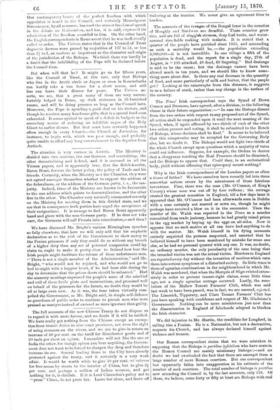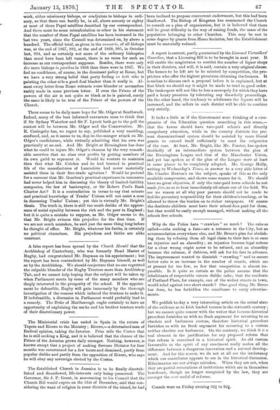Our Roman correspondent states that we were mistaken in supposing
that the Bishops in partibus itifidelium who have seatein the Roman Council are mainly missionary bishops ;—and no doubt we had overlooked the fact that there are amongst them a large number of mere Roman courtiers. But our correspondent has apparently fallen into exaggeration in his estimate of the number of such courtiers. The total number of bishops in partibus now attending the Council is, by the last accounts, only 119. Of these, we believe, some forty or fifty at least are Bishops with real work, either missionary bishops, or coadjutors to bishops in ordi- nary, so that there can hardly be, in all, above seventy or eighty at most of these Papal satellites described by our correspondent. And there must be some miscalculation or other in his statement that the number of these Papal satellites has been increased in the last two years, since the Council was determined on, by above a hundred. The official total, as given in the annuario, of all bishops was, at the end of 1867, 982, at the end of 1868, 985, in October last, 994, and as certainly not more of the ordinary bishoprics than usual have been left vacant, there is no room for such an increase as our correspondent supposes. Besides, there were only Jive more bishops in partibus in 1868 than there were in 1867. We feel no confidence, of course, in the dominant policy at Rome, but we have a very strong belief that party feeling on both sides is painting the other side a good deal blacker than it really is. Al- most every letter from Rome retracts some blunder or accusation rashly made in some previous letter. If even the Prince of the powers of the air is not quite so black as he is painted, surely the same is likely to be true of the Prince of the powers of the Church.































 Previous page
Previous page